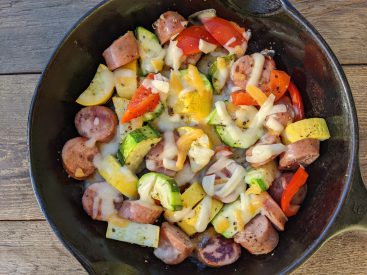When Spanish conquistador Gregorio de Villalobos arrived in Mexico in 1521, he brought a small group of passengers, their exact number disputed, who would transform Mexican cuisine. Six heifers and one bull stepped off that ship. The rise of the cattle industry was set in motion. European colonists brought […]
Delicious!
Delicious!



